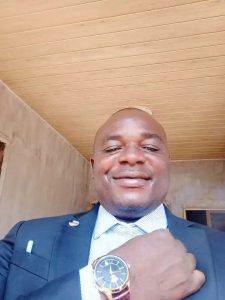
By Ewere Okonta
08037383019
www.ewereokontablog.org.ng
I hope you’re all doing well this beautiful Sunday. Today, I want to touch on something that’s really weighing on my heart—the role of political leadership in fostering unity in our increasingly divided world. It’s a topic that’s hard to ignore, especially in times like these when political tension is at an all-time high. We are at a crucial juncture where the quality of leadership determines whether we move forward together or fragment into disunity.
The State of Our World: Division Everywhere
Now, let’s be real for a moment. It feels like everywhere you turn, there’s division. Whether it’s social media, news outlets, or even family gatherings, it seems like we’re being pushed to pick sides more than ever. Left vs. right. Azun Agbor vs. Azun Owa. PDP vs APC. The rhetoric is loud, the stakes are high, and the tension is thick. And let’s not even get started on the debates we have at home or in the church about who’s right and who’s wrong.
But here’s the thing: it doesn’t have to be this way. The power to bring people together lies in the hands of our leaders—but not just political leaders. Each one of us has a role in this, especially when we look at how our faith and values can guide us through. However, true change must begin at the top. A good leader should serve as a rallying point for unity and progress, setting an example of what it means to bring people together rather than tearing them apart.
What Leadership Should Look Like
When we look at the examples of leadership in the Bible, we see a clear theme: true leaders are servants. They’re not focused on division or power; they’re focused on bringing people together. Think about the leaders we admire—whether it’s Nehemiah, who rebuilt the walls of Jerusalem with a divided community, or even the teachings of Jesus, who broke down the barriers that divided people. Their leadership was rooted in service, empathy, and the ability to unite those under their care.
In contrast, today’s political climate is often riddled with leaders who thrive on polarization. Many exploit differences for personal or political gain, deepening the divides within our society rather than working to heal them. This is where we, as citizens, must demand more from our leaders. Leadership is not about fueling division but about guiding people toward common goals, mutual understanding, and a shared vision for the future.
So, when we look at our political leaders today, we must ask: Are they serving the people? Are they working to unite us or divide us? Are they creating spaces for dialogue or deepening the chasm between us? A true leader does not seek power for personal gain but rather embraces responsibility for the collective good.
A Good Leader as the Rallying Point for Unity and Progress
A good leader must embody key qualities that promote unity and progress. Leadership is not merely about occupying a position of authority; it is about inspiring trust, fostering collaboration, and ensuring that diverse voices are heard and valued. True leadership should be a source of hope, a beacon of light in dark times, and an unwavering anchor that keeps the ship steady amidst the storm of societal challenges.
1. A Leader Must Prioritize the Common Good
A leader must rise above personal interests, tribal affiliations, and party politics to prioritize the well-being of all. They should work to bridge the gap between differing perspectives and find solutions that benefit the majority rather than cater to a select few. Leadership is not about advancing one group over another but about ensuring inclusivity and fairness.
2. A Leader Must Be a Unifier, Not a Divider
A great leader understands that diversity is a strength, not a weakness. Instead of pitting people against each other, they seek ways to harmonize differences and leverage them for national development. They must encourage dialogue and create platforms for all voices to be heard, recognizing that unity does not mean uniformity but a shared commitment to progress.
3. A Leader Must Inspire and Lead by Example
People look up to leaders for direction. A true leader does not merely dictate or impose; they set the standard through their actions. When leaders exhibit honesty, empathy, and a commitment to peace, their followers will be more inclined to emulate these virtues. Leadership must be about influence through example, not coercion through authority.
4. A Leader Must Address Injustice and Promote Equity
Nothing fuels division more than the perception of injustice. A good leader must be firm in addressing issues of inequality, corruption, and systemic discrimination. They must ensure that justice is served fairly and that policies are implemented to benefit all citizens, not just a privileged few.
What Does Unity Look Like in Our Political World?
Unity doesn’t mean we all agree on everything—that’s not realistic. But it does mean we show respect for each other, listen actively, and seek common ground. In politics, it’s about prioritizing the greater good over personal interests, putting the needs of the people above party lines, and standing firm in values that promote peace and progress.
Imagine a political world where leaders prioritized empathy, understanding, and collaboration. Where they didn’t just hear the loudest voices but also the quietest ones, considering all people regardless of background. That’s the kind of leadership we should seek, and it’s the kind of leadership that can heal the wounds of division.
How Do We Play Our Part?
Now, while it’s easy to point fingers at political leaders and say, “They should do better,” we have to remember: we, too, are leaders in our communities. It’s our responsibility, as people of faith, to practice what we preach. It’s not just about voting for the right candidate (although that’s important)—it’s about how we show up in our everyday lives.
When we engage in political discussions, let’s do so with respect and humility. Let’s listen to understand, not just to respond. Let’s encourage unity in our families, churches, and communities. And above all, let’s not let the noise of division drown out the voice of peace.
Final Thoughts
As we go through the week ahead, let’s reflect on our roles as both citizens and Christians. Let’s think about how we can build bridges instead of walls. Let’s challenge ourselves to lead with love and understanding because if we want the world to change, it starts with us. The leaders of tomorrow aren’t just the ones in power—they’re also in the pews, the kitchens, and the homes. Each one of us has the potential to be a peacemaker.
So, as you go through this week, I encourage you to hold onto hope, to look for ways to connect, and to remember that unity is possible, even in our differences.
Let’s pray for wisdom for our leaders, for strength in our communities, and for a spirit of reconciliation to guide us all. Amen.
This is my Sunday sermon from my holy pulpit!
Ewere Okonta is the CEO of EOB Media. He writes from the Department of Business Administration, University of Delta, Agbor

